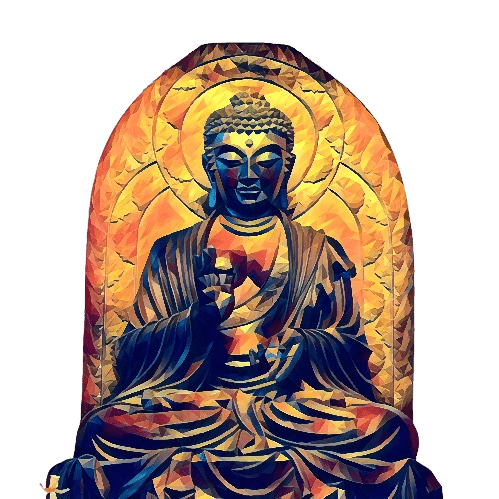Buddhist philosophy on grief: how it can help people who are grieving
When someone we love dies, it feels like our world is turned upside down. We feel confused, lost and alone. Many people struggle with their grief for months or even years after a loss. But what if there was a way to ease the pain and make the journey through grief a little easier? The Buddhist philosophy of grief can help people who are grieving move on after a loss and heal their broken hearts.
What is the Buddhist philosophy on grief
Buddhist philosophy on grief is based on the teachings of the Buddha. Buddha was a spiritual leader who lived in India over 2500 years ago. He taught that all life is interconnected and that everything is constantly changing. He also believed that suffering is caused by attachment to things that do not last. When we lose someone we love, it is natural to become attached to them and want everything to go back to the way it was. But according to the Buddha, this is the cause of our suffering.
In case you're wondering, Whether Buddhism is a philosophy or a religionHere you will find a detailed article that explains why Buddhism is both.
How can it help people who are grieving
The Buddhist philosophy of grief can help people who are grieving in several ways. First, it can help them accept that change is a natural part of life. Second, it can teach them to let go of attachment to the person they have lost. And third, it can help them find compassion for themselves and others.
Now let's take a closer look at these three points:
Accept that change is a natural part of life:
One of the hardest things about grieving is coming to terms with the fact that your loved one is gone and will never come back. Buddhist philosophy can help us accept this by teaching us that change is a natural part of life. Everything is constantly changing, and nothing stays the same forever. Learning to accept this can make our journey through grief a little easier.
You can follow these steps to practice acceptance:
- Acknowledge your feelings: It is important to allow yourself to feel the pain of your loss. Do not try to suppress your feelings.
- Stay with your feelings: Once you've admitted your feelings, stay with them for a while. Don't try to run from them or distract yourself. Just let them be there.
- Remember that this too shall pass: All feelings, even the painful ones, eventually come to an end. This, too, will pass. - Buddhist philosophy can help us accept that change is a natural part of life.
Letting go of ties
Another difficult aspect of grief is letting go of the attachment to the person we have lost. We may feel that we cannot live without them and that we will never be able to move on. But according to Buddhist philosophy, attachment is the root of suffering. Learning to let go of our attachment helps us find peace and heal our broken hearts.
Finding compassion for ourselves and others
The Buddhist philosophy of grief also teaches us to have compassion for ourselves and others. This is important because when we grieve, we can often be hard on ourselves. We may feel that we are not doing enough or that we are not handling our grief properly. But learning to have compassion for ourselves helps us to be kinder to ourselves and find strength during this difficult time. Buddhist philosophy can also help us to have compassion for others who are grieving. We may not understand what they are going through, but learning to be compassionate will help us feel connected to them and give them the support they need.
What are some of the main points of this philosophy
One of the main points of Buddhist philosophy is that everything is constantly changing. This also applies to our thoughts, feelings and body. Nothing stays the same forever. When we lose someone we love, it is important to remember that change is a natural part of life. Accepting this can help us let go of our attachment to the person we lost and heal our broken heart.Another important point of Buddhist philosophy is that attachment is the cause of suffering. When we are attached to someone, we want things to stay the way they are forever.
But as we have seen, change is a natural part of life. Trying to hold on to things that are constantly changing only causes us pain. Buddhist philosophy teaches us to let go of our attachment and find compassion for ourselves and others.The Buddhist philosophy of grief can help mourners move on after a loss and heal their broken hearts. It can help them accept that change is a natural part of life, let go of attachments, and find compassion for ourselves and others. Buddhist philosophy is a powerful tool that can help us on our journey through grief.
Do you have personal experience with the Buddhist philosophy of grief? How has it helped you on your journey through grief? Share your story below in the comments.
If you want to learn more about Buddhist philosophy, there are many resources online and in libraries. Here are a few to get you started:
- The Buddha's Teachings on Impermanence, Suffering, and Peace of Mind by Jack Kornfield
- Buddhism for Beginners by Thich Nhat Hanh-The Heart of the Buddha's Teaching by Thich Nhat Hanh
- When Things Fall Apart: Heart Advice for Difficult Times by Pema Chodron-.
- No Death, No Fear: Comforting Wisdom for Life by Thich Nhat Hanh
- Buddhist grief counseling: a compassionate website with resources for the grieving (buddhistgriefsupport.com)
Can it help people move on after a loss?
The Buddhist philosophy of grief can help people move on after a loss. It teaches us to accept that change is a natural part of life, to let go of attachments, and to develop compassion for ourselves and others. These teachings can greatly help us on our journey through grief.
Are there any other benefits of philosophy?
Buddhist philosophy can help us in many different areas of our lives (which is why we have written several articles about this fascinating philosophy), not only when we are grieving. It can help us find inner peace, be more compassionate, and live in the present moment. The teachings of Buddhist philosophy can be a valuable guide on our journey through life.

Who and how Buddha really was you can learn here







